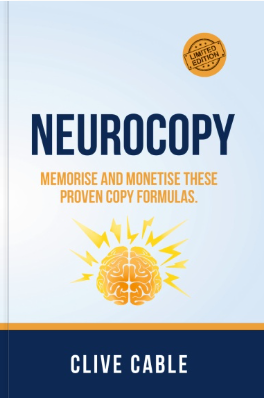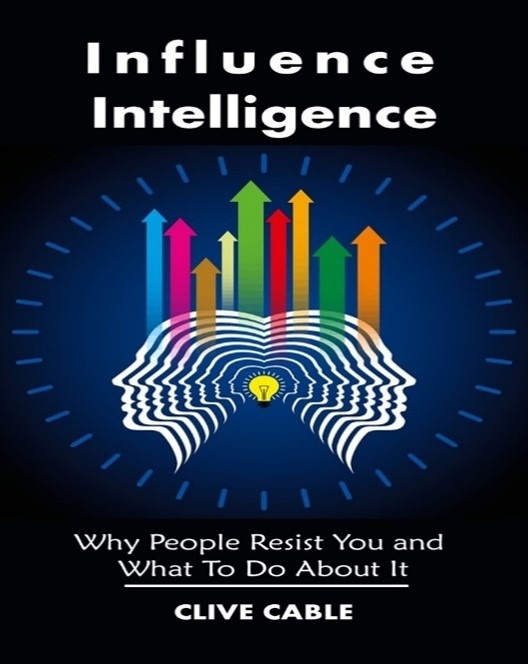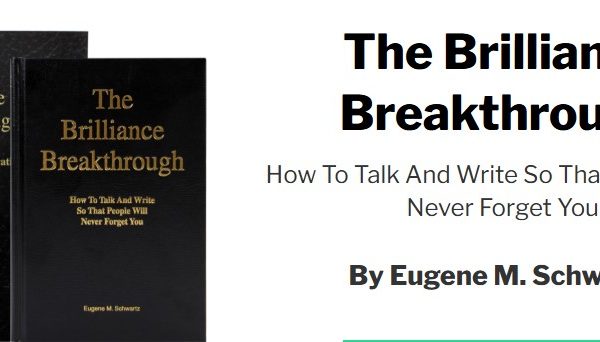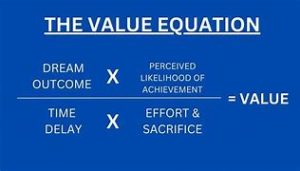“You can get anything you want in life if you help enough other people get what they want.” Zig Ziglar.
Selling is serving.
When was the last time you bought anything that cost a lot of money? Did you think the person you bought that from sold you or served you?
Selling is NOT a 4 letter word.
Nothing happens in business until a sale is made. To sell is human. Not to sell is inhuman. Our economy and freedom reles on trade and commerce.
Selling is the number 1 skill in business.
There are only two types of people. Those who can sell and those who can’t. Those who give and those who take.
Most articles on persuasion are not effective and don’t speak to the readers on an emotional level, I thought I’d start out by asking you some questions.
If they resonate with you, great. If they don’t, please hand this to someone who understands that people love being persuaded by skilled people who have high integrity and are looking out for others.
Here are the questions:
- Do you ever get annoyed when people don’t do what you want them to do?
- Are your suggestions to others frequently ignored?
- Do people occasionally stop listening when it’s your turn to talk?
- Are your views often invalid in the eyes of others?
- Does your partner/spouse refuse to do what you want most of the time?
- When you talk to your children or parents do they sometimes reject your ideas?
- Do your clients refuse to give you referrals?
- Have you experienced any resistance from friends and family lately?
- When negotiating do you lose a lot of the time?
- Do people withhold their love and attention from you at times?
If you answered yes to more than three of these questions, then what you’re about to read will show you why this is happening to you.
Before we get started, have this one fact crystal clear in your mind – if you don’t have a plan to persuade others, you’ll have to go along with their plan to persuade you.
I’ve been researching, using, and fine-tuning persuasion strategies for over 23 years. I have looked at persuasion in print and in person from the world’s best and I’m here to tell you about why people resist you.
I become involved in selling in 1986 working as a door-to-door commission only salesperson. This is a world where you only eat what you kill. If the buyer smelt commission breath on you that was the end. So even though they knew you were selling to them, you had to come across as if you weren’t.
And with the low self-confidence I had back then it wasn’t easy.
I struggled for a month, and when you have a wife, two children, a mortgage plus all the other bills – each month seems like a year.
I began to read books and pick up anything I could get my hands on to help me make money and be more persuasive.
For the first four years it was difficult. But I found the sales tools that worked, made money, and survived to help you.
You see if I had in my possession what you’re about to read, I would have made ten
times the money I made back then.
As we get into specific details you should understand this. Every word has power. When you talk to anyone – once you’ve said what you’ve said you can’t take it back. Your words will hurt or heal and there’s very little in between.
Unconfident people make the following basic mistakes with their language. And if that’s you… it isn’t necessarily your fault.
Understanding Emotions.
In school, no one ever teaches self-confidence. Nor do they show you about word choices that unconsciously hurt others and lower their self-esteem.
The truth is people feel good about you if you say the things they like.
This makes them want to be around you. Their self-esteem, their ego and their self- worth gets a boost every time your words trigger off positive feelings inside of them.
If on the other hand you are constantly saying things people don’t want to hear they won’t want to be around you.
By making people feel bad – even unintentionally – you hurt their self-confidence and undermine them.
Also, a lot of words will trigger past events and emotions. And because the brain works by association, what you say will fire off certain emotions.
Either good or bad.
These are known as ‘anchors.’ When you unconsciously pair one thing with another, it anchors the two together.
For example: The smell of freshly brewed coffee can bring back memories of being with someone special in a café. Or the music you used to hear as a child when heard again recalls what you were doing at that time.
All this goes on below the level of normal consciousness, in other words outside of your awareness.
If you use words that upset people and stir up negative memories, they will associate their upset-ness with you.
They’ll lose confidence in you . . . therefore you’ll find it difficult or impossible to persuade them.
Let’s look at some of the many reasons why people might resist you today.
These are usually down to the choices of words you use when talking to others.
Your choices of words are either bonding you or alienating you from others… it’s simple but not easy.
The 3 R’s.
There’s three R‘s in persuasion. Rapport – Resistance – and Rejection.
If you have a strong rapport, you’ll meet little resistance and almost no rejection.
If you have mediocre rapport, you’ll meet more than your share of resistance and a fair bit of rejection.
If you have little or no rapport, you’ll always encounter resistance (unless you’re forced to comply, as you are when you’re stopped by the police).
If you have no rapport, you’ll have outright rejection.
Now everyone knows if you want to persuade someone to do something you’re not going to swear at them. I mean that’s just stupid right?
Want to know a word that’s almost as bad as swearing? This word completely destroys trust, confidence and rapport at the unconscious level the instant it’s heard.
Imagine that one word so powerfully negative and destructive to persuasion that even outside of your awareness it completely turns you off the person who uses it constantly.
And yet normal, decent people believe this word is okay to use in conversation.
It’s not never has been never will be. Using this word is like listening to a bunch of people talking and no one listening.
It’s like a competition of opinions and nothing more. No one makes any headway because no one is interested in the people who use this particular word.
I’ll tell you what it is in just a moment … in the meantime see if you can guess.
This word seems so insignificant when you hear it. Yet it’s so profoundly awful when your brain sees the real meaning behind it… which it always does.
Have you guessed the word yet?
No, I haven’t used it, however I will soon. When I tell you, you’ll begin to hear it all the time.
The minute you stop using it, you’ll instantly be more persuasive.
How’s that for a promise?
Also, people will listen more to what you have to say.
You’ll even get better responses from the people you talk to. And your self-confidence will immediately begin to grow.
It is of course the word ‘but.’
“Yes but,” I hear you say, “it’s only a little word.” And my reply is, the meaning of your communication is the response you get.
If you want a more positive response, use better language.
“But no one has ever told me the word ‘but’ can be that bad.”
What I can tell you is this, the word “but” negates all that went before it.
Here are some examples:
“He’s a lovely guy, but he swears a lot.” “I like that dress, but it doesn’t suit her.”
“That’s a good TV programme, but I hate the presenter.”
In each case the word ‘but’ is the destroyer. If you use a lot of ‘yes buts’ and ‘no buts’ your message has been phrased in such a way that the other person doesn’t want to accept it.
If you use “yes but” and “no but” a lot, then you will move out of rapport with the people you are with, lose their trust and confidence and you’ll greatly reduce your chances of persuading them.
And if you’re ‘yes butting’ to these words right now it’s because you’re a certain type known as a ‘reactant.’ According to Professor Knowles (who is the world’s leading researcher on resistance), reactants mismatch or find differences in what another person is saying to them.
Another name for a reactant is a ‘mis-matcher.’ These people always say the opposite to what you’re saying.
If you’re finding yourself reacting to what I’m saying… then I don’t suppose you could find what I’m saying wrong, could you?
Cleaning up your language in the ways I’m talking about here will allow you to have
more confidence. When you have more confidence, you’ll influence others effortlessly
Can I be honest with you?
Shall we look at another very important way people prevent themselves from persuading? I hope you don’t use these words, BUT if you do you can stop.
Now as a side note… that was an example of the correct way to use the word “but.” I
used it to negate a bad habit you may have.
The words ‘to be honest’ or ‘honestly’ are words that presuppose you’ve not been all that honest up until now , so why should someone believe you now if they think you’ve been lying to them previously?
Okay, YOU may not think there is anything wrong with the words ‘to be honest,’ but the person you’re attempting to persuade will.
If you’re in business trying to convince others some people will naturally be wary. And in most cases, they will have very little faith in you and refuse to put their trust and confidence in you.
They have probably been taken for a ride before by someone else who repeatedly said, “I’ll be honest with you.”
Never use the words ‘honestly,’ or ‘to be honest.’
If you’re being honest, you don’t need to say so… By saying “to be honest”, you detract from your message.
It’s not funny.
This next word is a stock favourite of one of my brothers, who, as it happens works in sales. It grates on my ears like chalk scraping a blackboard every time I hear him use the word, “NOT”.
I’m not being funny but… Now my brain and yours doesn’t hear the word “not” in this sentence structure. I’m not being awkward but… what does that sentence really say to you?
It says to me you are being awkward, funny or any other word you’re trying to distract
me from.
Stop using this word and watch how peoples’ reactions towards you change for the
better.
You may be saying, how am I going to remember all of this? The answer is, take one word at a time and for one whole week leave it out of your vocabulary.
More bad language.
I’m now going to show you the next set of disgusting words to avoid when you want to
persuade people to your way of thinking.
Before I do, I was just wondering, have you found that it’s the people who seek out valuable information like this that get further ahead in life? They’re usually more successful than others and make more money than most people.
Just suppose you could get more people to do what you asked because you had better persuasion skills and more self-confidence.
How would that benefit you? As you think about those benefits, let’s explore other words never to use in persuasion. As we do can begin to realise what having even more of this kind of information can do for you.
I thought so.
Moving on… the next nasty little word is ‘try.’ Yes, it seems so trivial it’s hardly worth mentioning, until that is you ask someone to do something important for you. And they say, “I’ll try.”
What they’re really saying is, “I probably won’t, and if I use the word “try” I’ve got my get-out clause before I even start. I didn’t really promise. I only said I’d try”.
Sound familiar?
If you use this word, then others will know you won’t do anything you say either.
You lose their confidence straight away.
So cut it out, here’s why.
Try and raise your eyebrows. Try really hard now and get them up.
What happened? If you lifted your eyebrows, you were not following my instructions, because you did it.
If you didn’t lift them, you weren’t following my instructions either because you didn’t do it. You can only do something or not do it, if you don’t believe me see where you can find anything out there in nature that is merely ‘trying’ to do something.
There are only two things that really count in life.
- The confidence to go out into the world and get what it is you want.
- The competence or having the right set of skills so you know in advance you are assured of succeeding.
All the rest is just commentary.
And one feeds off the other, self-confidence is fuelled by self-efficacy. You first have the confidence to learn new things and risk new ways of doing things. Next you get the results you were after because you were competent.
It’s like a feedback loop.
Other words to leave to others.
Don’t use this word.
“Don’t” is another bad word when persuading others because you’re actually instructing them to do the very thing you don’t want them to do. Don’t imagine yourself on the beach right now in the warm sun, looking out over a calm sea.
Were you just there?
But I said don’t – how could you?
My brain and your brain cannot process the word “don’t”, that’s why.
Don’t think how that would help you now, so let’s move onto the next set of words in the negative category we’re focusing on.
Hitting the rewind button.
The words “should” and “shouldn’t…” shouldn’t be used in persuasion. These take the power out of your persuasion like popping a balloon with a pin. You may get a loud bang, but all the wind has gone out of your argument.
There are no rewind buttons on life so you can’t go back and should have, could have, shouldn’t have done anything.
All you do when you used to use these words should, shouldn’t, etc., is make people feel
guilty.
And since people never like to feel guilty you get the blame for making them feel bad
about something they’re supposed to have done or not done.
As I said earlier if you make people feel bad, they’ll associate that feeling with you.
Are you beginning to see how this all works?
It’s a different viewpoint to look at language in this way. You’re starting to hear words
people say differently.
Removing these from your language will make other people feel better about being around you. They’ll quickly catch on and react to you in a warmer, friendlier way. It’s as if a light bulb goes off in their mind and they see you in a new light.
Your words, the way you speak somehow sounds different and they grasp what you’re trying to get across. They move closer to you figuratively speaking. They warm to you faster than ever before.
You’ll also begin to feel more confident around others. With clean language you can
move into persuading others with relative ease.
Now that you understand how words can automatically trigger off emotions you want to make sure you trigger good emotions in order to get people to do what you want them to do.
Change happens.
But what about the language other people use when they talk to you? I believe other
people use language that can end up taking you away from your life’s dreams.
When that happens, it can affect your self-worth, your self-motivation, your self- esteem, your self-image and much more.
That’s why you need to study persuasion. Here’s what I mean.
Imagine you’re a boxer. You can punch but you can’t block.
What do you think would happen to you in a fight?
You think you can rely on your ability to hit your opponent. But if you can’t prevent him from hitting you, you’re going to be beaten bloody almost every time. That’s the same with persuasion.
If you don’t know how to defend yourself, you’ll be fleeced for every penny you have. You see in business you’ll meet more tricksters and conmen that anywhere else in life.
Have you ever heard of the bank robber Willie Loman?
He was one of the most successful bank robbers in his day.
When he was eventually caught, he was asked why he robbed banks. He said, “Because that’s where the money is!”

Want an unfair advantage over 98% of ordinary copywriters?
Forget the basic copy formulas that no longer work. BAB (Before and After Bridge) PAS (Problem Agitate Solve) AIDA (Attention – Interest – Desire – Action) buyers are immune to these.
BUT the 13 ways to intensify desire, the One Belief 10 Questions or the 12 Proof Elements – all sales copy must have are these proven million dollar winners.
They are all here (and more) inside this book.





